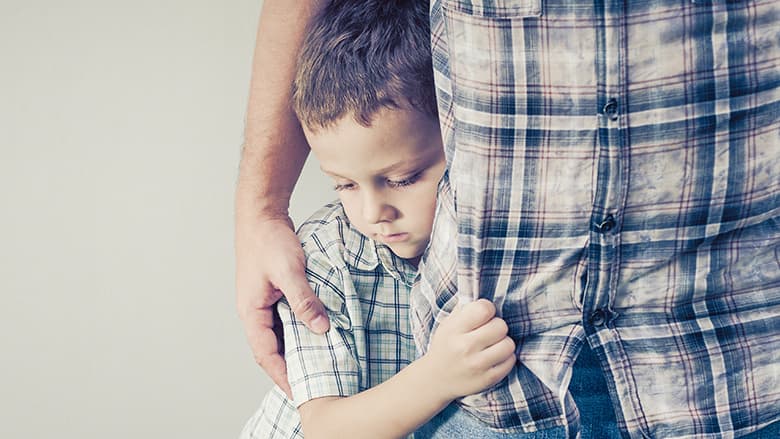Anxiety in Children and Ways to Deal With It


When babies are born, they are often happy to be passed from one person’s arms to the next without much fuss as long as they are warm and comfortable. As they get a little older, they begin to fear being passed on to strangers. As a child grows up, predictable fears may emerge. They exhibit a fear of the unknown since they are extremely dependent on their caretakers.
The development of stranger anxiety coincides with a child’s budding sense of belonging in the world. Around the time that stranger anxiety begins, the child realises that the relationship they have with the people they spend the most time with (often their parents) is different from the relationship that they have with strangers and other people they do not know well.
While being anxious with strangers is normal, the intensity and duration of the distress experienced by any kid, along with the ways that distress is expressed, may differ.
Children might try to hide or express verbally that they want to stay with their parents or want to hold them. Stranger anxiety, in most children, is a normal feature of development and could occur in some form. While in most cases stranger anxiety cannot be avoided.
Anxiety in Children and Ways to Deal With It
Here are a few steps that parents can take to minimise the anxiety levels during the developmental stages.
1. Early Exposure
Having the child become familiar with new people early on, can help your child deal with stranger anxiety in the future. From a young age, introduce the child to unfamiliar people in the parents’ presence. Parents should try every opportunity to introduce their children to new people.
2. Do not force or pressurise
Parents should avoid pressuring their children to “be sociable.” Instead, allow children to become accustomed to new faces and new situations at their own pace.
3. Watch the tone and language
Avoid statements like “Don’t be afraid” or “stop crying.” While you may mean well, these statements can make your child feel like their feelings are misunderstood. Instead, stick to phrases that provide empathy and reassurance. Children should feel that their parents are with them at all times and should allow them to take their own time.
4. Anger
Anger is the most common thing we observe in today’s children. The use of fear increases the chance of the child turning out to be aggressive towards his / her parents or people with whom he/she regularly interacts with.
5. Open to exploitation
When a child is subjected to continuous fear at home, there is every chance that even a little bit of “sweet talk” by a stranger seems attractive to the child. This can result in strangers taking advantage of their children. However, it is not very difficult to think of a process through which we can stop or reduce the use of fear.
Instead, Parents can try these methods which might help their children to overcome stranger’s anxiety.
- Use appreciation and motivating words instead of fear. The result may get a bit delayed but will be more beneficial.
- It is important to watch our own actions and use of words. There are times when we do some actions unconsciously that may damage a child’s esteem.
- Understand the thin line between being rude and being firm. Being firm doesn’t require the use of fear.
- Many of us have grown up in a much more secure environment. Try to take learning from your own childhood and remember the incidents that you did not like and incidents that made you look at things positively as a child.
